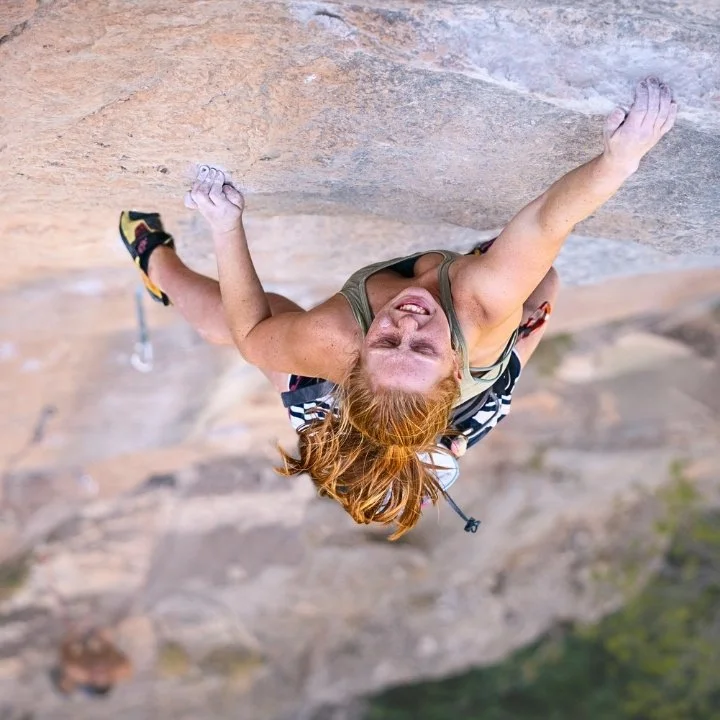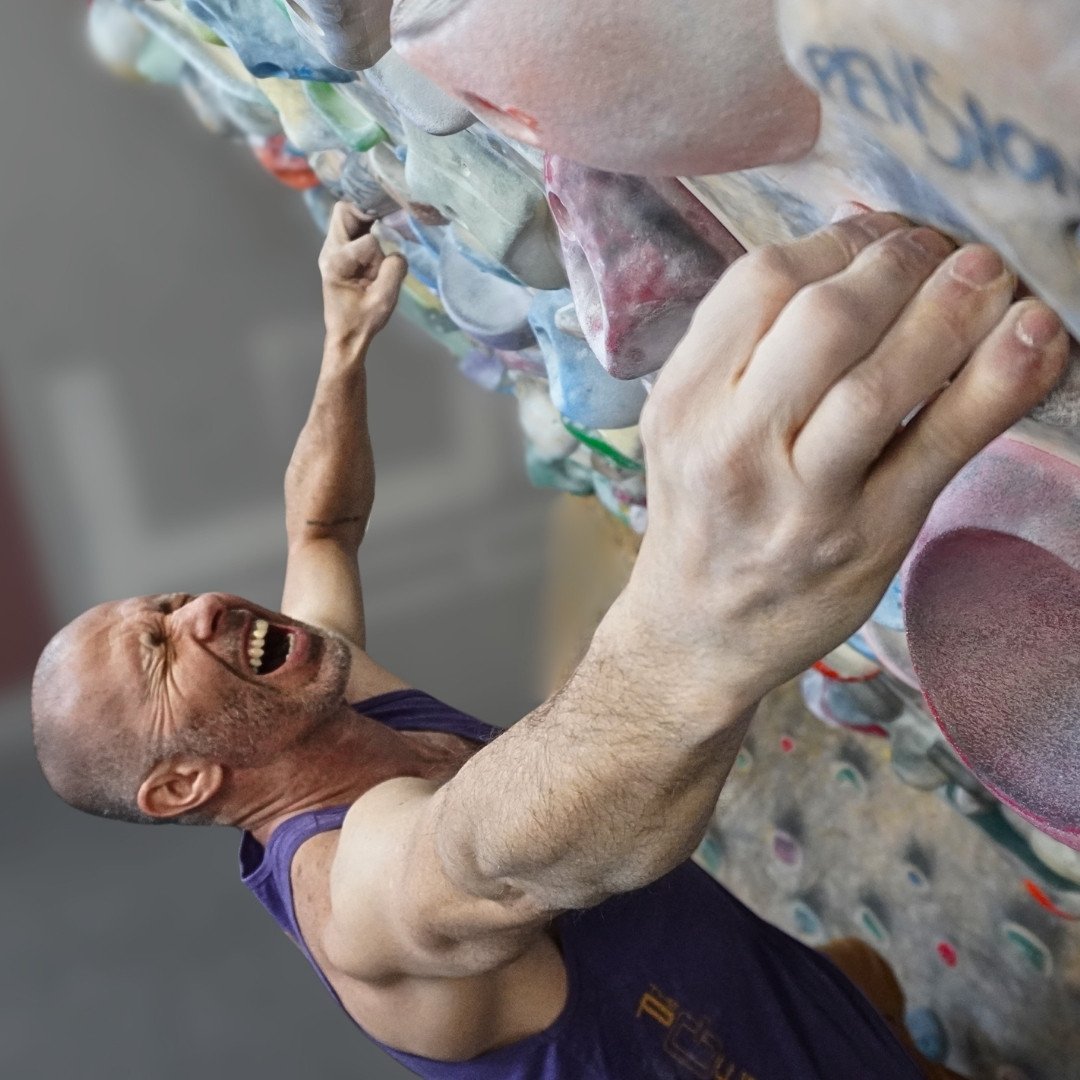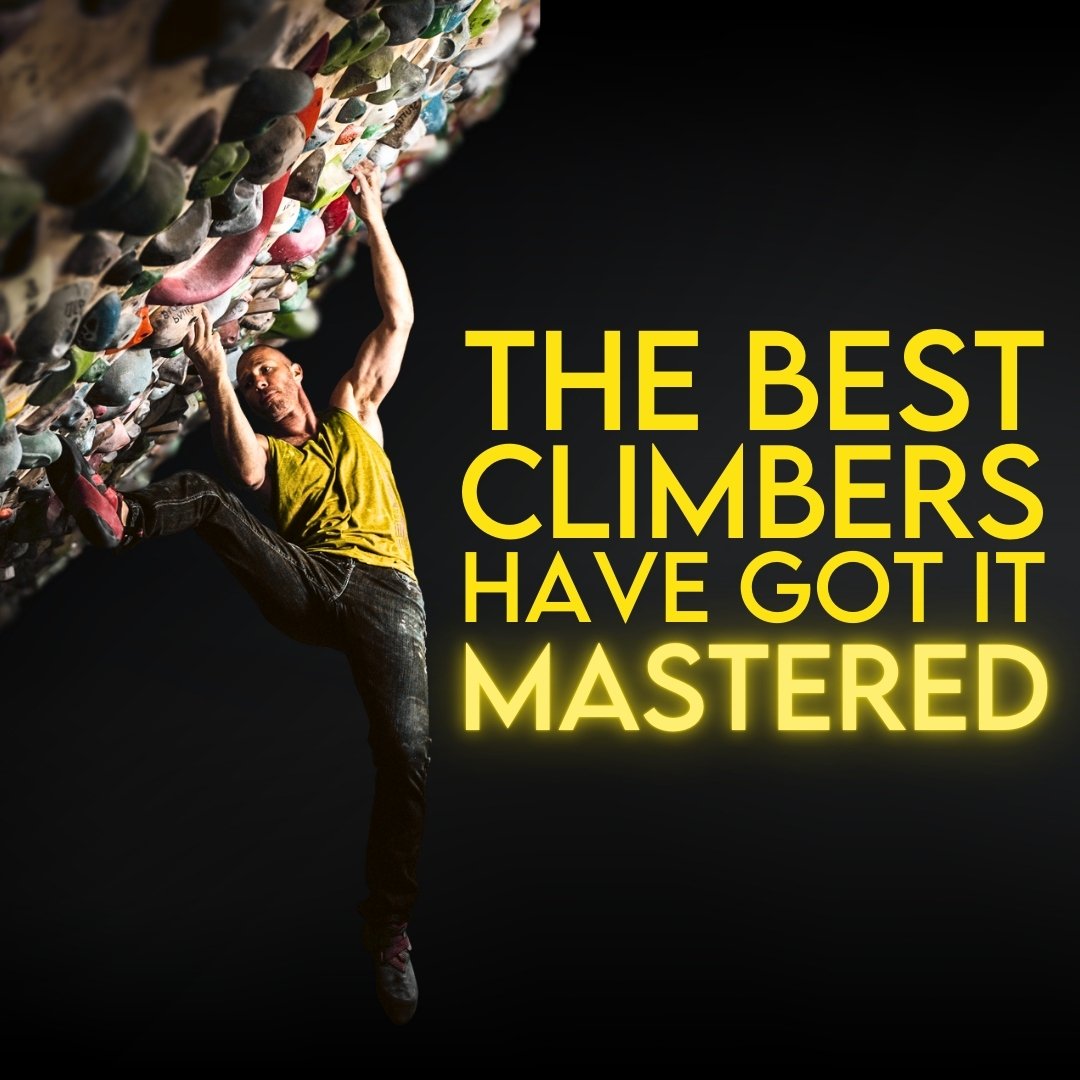It's All Uphill From Here
One of the biggest things holding back advanced climbers is the struggle to differentiate between what is hard for them personally and what is just a hard part of rock climbing.
There are quite a few things that can make a climb challenging:
The holds are hard to grab
The moves are big
The holds face the wrong direction
The positions are hard to get into and maintain
The feet are bad
There’s a high demand of coordination between all of your limbs
The sequence that is ideal for you is hard to unlock and fully understand
Linking all of the moves together is both physically exhausting and technically demanding

The longer we climb and train, the more we improve. As the grades we climb on increase, those challenges listed above also increase. That might seem obvious, but I consider it to be one of the most overlooked aspects of our sport and a major reason why so many advanced climbers stall in progress.
We need to accept that all of those bullet points will continue to exist to some degree for our entire climbing career. No matter how strong, fit, technically savvy, or mentally capable you become, all of the things that make climbing hard only intensify as the grades go up.
As you level up, so do those challenges.
After years of climbing and struggling to get better, we tend to develop some level of competency. It feels good to finally be decent at this thing that you’ve worked hard at for years. It’s okay to feel that. The problems arise when we cling onto that comfortable feeling of competency and refuse to get back to the uncomfortable work that’s required if we want to improve.
There’s a desire that we all feel at some point to out train this discomfort. If only we could get strong or fit enough for things to stop feeling so hard. Achievement and effort go hand in hand, though. The sooner you accept that your best performances will still feel like a struggle, the sooner you can identify and work on the things that are actually holding you back, rather than just the things that make you uncomfortable.
Are finger strength, power, or endurance really your low-hanging fruit or are you just trying climbs at your limit and wishing that they didn’t feel so hard?
Trying to improve at climbing is a Sisyphean task. That’s not to say that it’s meaningless, only that it’s a climb with no end. Effort isn’t just an unfortunate part of the process, it is the process. Learning to appreciate that might bring a level of enjoyment and clarity to your climbing that you haven’t felt in years.

Alex Megos once said that conditions don’t matter, but we all know that’s not true… or is it?
There’s one often overlooked thing that has the power to positively – or negatively – affect every single day of climbing for the rest of your life.
There is a point at which continuing a tactical approach can slow your climbing gains.
Toe-hooking can seem more like sorcery than other techniques, but you’re probably just going about it the wrong way.
Implementing this one simple thing can result in big performance gains in your climbing, no matter what level you’re at.
Despite being constantly present and often the reason we fail, Rhythm is the most underrated of the Atomic Elements of Climbing Movement.
Long-time friends Nate and Ravioli Biceps discuss lessons they’ve pulled from video gaming that can help inform our climbing.
There’s A LOT of great information out there on how to climb harder. But it’s tough to sort through…
Short climbers are good at getting scrunchy, and tall climbers are good at climbing extended, right? Wrong.
One of the most common places things start to fall apart is at the very beginning of the move.
We know spending time on a finishing link is smart tactics for hard climbs. So why not apply the same concept to individual moves?
Learning when and how to compensate for a weakness is a skill. And skills need to be practiced.
Lowball boulders, while not as proud, can still teach us new movement, new ways to utilize tension, and force us into finding new techniques.
I never thought I’d be recommending this, but some of y’all should be putting less effort into becoming technically better climbers.
Training principles are important, but when they creep into performance, your climbing will suffer. Nearly every time.
We have become collectors of dots. But there’s one major thing that happens when we connect dots that is entirely lost in mass dot collection: critical thinking.
Do you really have terrible willpower? Or are you surrounded by distractions and obstacles?
You have a climbing trip coming up. The rock is different. The style is different. Your pre-trip time is short and the number of days you’ll be climbing, even shorter…
Giving artificially low grades to climbs increases their perceived value for our training and development. The more something is mis-graded the more we naturally want to prioritize it.
Discussion around grades can be so polarizing that many of us avoid the topic.
Climbing starts off as this self-feeding cycle that has you wishing you could climb seven days a week. What happens when this cycle stops bringing improvement though?
Use strength to leverage every other aspect of your climbing, not replace them.






























Switching back and forth between sport climbing and bouldering can be difficult…